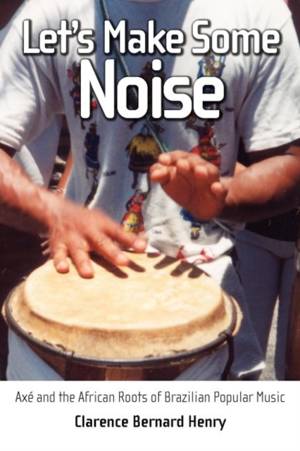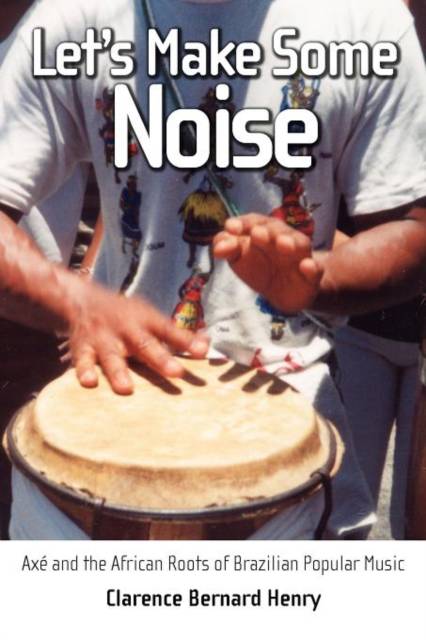
Bedankt voor het vertrouwen het afgelopen jaar! Om jou te bedanken bieden we GRATIS verzending (in België) aan op alles gedurende de hele maand januari.
- Afhalen na 1 uur in een winkel met voorraad
- In januari gratis thuislevering in België
- Ruim aanbod met 7 miljoen producten
Bedankt voor het vertrouwen het afgelopen jaar! Om jou te bedanken bieden we GRATIS verzending (in België) aan op alles gedurende de hele maand januari.
- Afhalen na 1 uur in een winkel met voorraad
- In januari gratis thuislevering in België
- Ruim aanbod met 7 miljoen producten
Zoeken
Let's Make Some Noise
Axe and the African Roots of Brazilian Popular Music
Clarence Bernard Henry
Paperback | Engels
€ 59,45
+ 118 punten
Uitvoering
Omschrijving
Clarence Bernard Henry's book is a culmination of several years of field research on sacred and secular influences of àsé, the West African Yoruba concept that spread to Brazil and throughout the African Diaspora. Àsé is imagined as power and creative energy bestowed upon human beings by ancestral spirits acting as guardians. In Brazil, the West African Yoruba concept of àsé is known as axé and has been reinvented, transmitted, and nurtured in Candomblé, an Afro-Brazilian religion that is practiced in Salvador, Bahia. The author examines how the concepts of axé and Candomblé religion have been appropriated and reinvented in Brazilian popular music and culture. Featuring interviews with practitioners and local musicians, the book explains how many Brazilian popular music styles such as samba, bossa nova, samba-reggae, ijexá, and axé have musical and stylistic elements that stem from Afro-Brazilian religion. The book also discusses how young Afro-Brazilians combine Candomblé religious music with African American music such as blues, jazz, gospel, soul, funk, and rap. Henry argues for the importance of axé as a unifying force tying together the secular and sacred Afro-Brazilian musical landscape. Clarence Bernard Henry is an independent scholar living in Newark, New Jersey. He has taught at the University of Kansas and his writing has appeared in Journal of Caribbean Studies, Journal of Latin American Lore, and other publications.
Specificaties
Betrokkenen
- Auteur(s):
- Uitgeverij:
Inhoud
- Aantal bladzijden:
- 256
- Taal:
- Engels
Eigenschappen
- Productcode (EAN):
- 9781617033278
- Verschijningsdatum:
- 21/02/2012
- Uitvoering:
- Paperback
- Formaat:
- Trade paperback (VS)
- Afmetingen:
- 152 mm x 229 mm
- Gewicht:
- 367 g

Alleen bij Standaard Boekhandel
+ 118 punten op je klantenkaart van Standaard Boekhandel
Beoordelingen
We publiceren alleen reviews die voldoen aan de voorwaarden voor reviews. Bekijk onze voorwaarden voor reviews.









